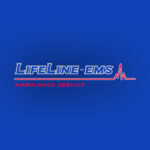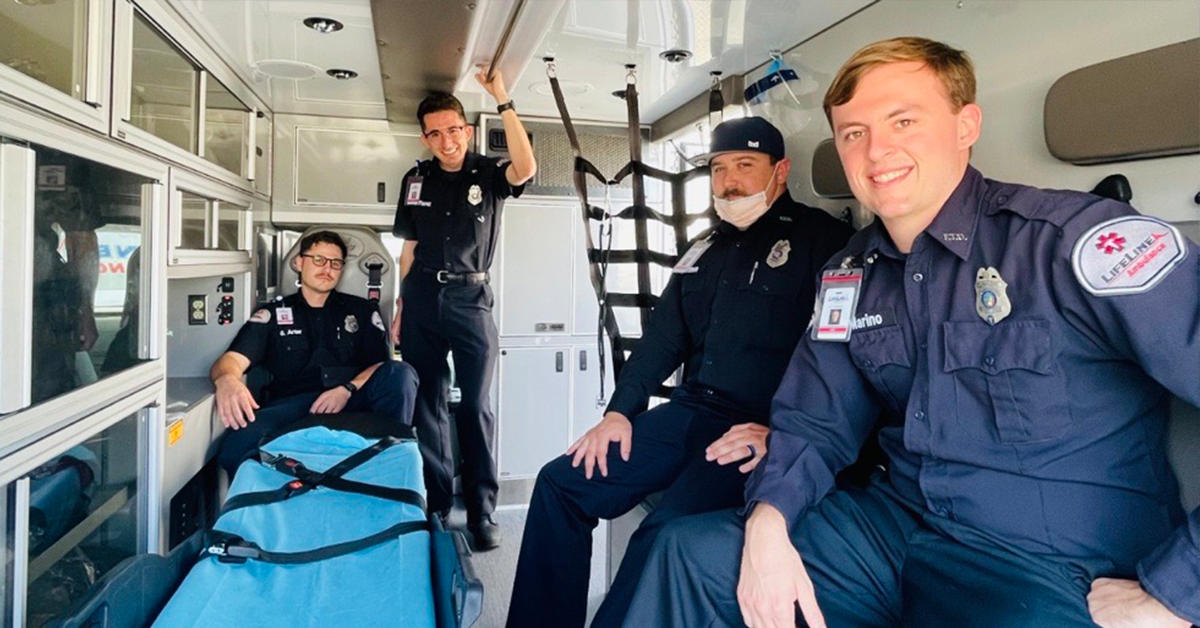Starting your career as an Emergency Medical Technician (EMT) offers a unique blend of hands-on experience, skill development, and personal growth that few other entry-level positions can provide. For those in Los Angeles and Southern California, LifeLine EMS offers the ideal platform to launch a rewarding career. This article explores the benefits of beginning your professional journey as an EMT and how it can open doors to diverse opportunities in healthcare, public safety, and beyond.
The Role of an EMT
Before diving into the benefits of starting as an EMT, it’s essential to understand the role. EMTs are frontline healthcare providers who respond to emergencies, deliver critical care, and ensure patients receive timely transport to medical facilities. Their quick thinking and ability to remain calm under pressure make them invaluable in the healthcare system.
Key Responsibilities:
- Emergency Response: Arriving at the scene of emergencies to provide immediate care.
- Patient Assessment: Evaluating a patient’s condition to determine the appropriate treatment.
- Lifesaving Interventions: Performing critical procedures such as CPR, wound care, and stabilizing patients for transport.
- Patient Transport: Safely transporting patients to hospitals while continuing to monitor and care for them.
- Collaboration: Working closely with other healthcare providers and emergency responders to ensure seamless patient care.
Why Starting as an EMT is a Great Career Move
Beginning your career as an EMT offers numerous advantages that go far beyond the immediate job. Here’s why starting as an EMT is an excellent decision for anyone looking to build a strong foundation for their professional future.
1. Hands-On Experience in Real-World Situations
One of the most significant benefits of starting as an EMT is the immediate exposure to real-world scenarios. Unlike many other entry-level positions, where you may spend time in training without direct interaction with real situations, EMTs gain hands-on experience from day one.
Real-World Applications:
- Immediate Impact: As an EMT, you will be directly involved in patient care and emergency response from the start, making a tangible difference in people’s lives.
- Practical Skill Development: The skills you learn in EMT training, such as administering first aid, managing trauma, and handling medical equipment, are put into practice immediately.
- Diverse Situations: Every shift brings new challenges and unique situations, ensuring that your work remains dynamic and varied, keeping you engaged and constantly learning.
2. Rapid Skill Development
Starting as an EMT helps you develop a broad range of skills that are highly transferable across multiple industries. These skills not only make you a more competent healthcare provider but also prepare you for roles in leadership, public safety, and beyond.
Key Skills Developed:
- Critical Thinking and Problem-Solving: EMTs must quickly assess situations and make decisions in high-pressure environments. This ability to think critically under pressure is highly valued in various professional settings.
- Communication and Interpersonal Skills: Working as an EMT requires clear communication with patients, families, and colleagues. You’ll develop the ability to convey information effectively and compassionately, even in stressful situations.
- Teamwork and Leadership: EMTs frequently collaborate with other emergency responders and healthcare providers. Whether you’re leading a situation or supporting your team, the teamwork and leadership skills gained as an EMT are crucial in any career.
3. Career Stability and Job Security
The healthcare sector is one of the most stable industries, and EMS professionals are always in demand. During times of economic uncertainty, job security becomes even more critical. As an essential service, EMS professionals enjoy a high level of job stability.
Benefits of Job Stability:
- Consistent Demand: The need for emergency medical services remains constant regardless of economic conditions, ensuring steady employment opportunities for EMTs.
- Pathways for Growth: Starting as an EMT provides a clear pathway to advancing within the field, whether you aim to become a paramedic, move into healthcare administration, or explore specialized medical roles.
- Valued Skills: The skills you acquire as an EMT are highly valued across multiple sectors, making it easier to transition to new roles if you choose to explore different career paths later.
4. Gateway to Advanced Healthcare Careers
A career as an EMT serves as a stepping stone for those looking to pursue advanced roles in healthcare. The experience gained provides a solid foundation for further education and specialization.
Opportunities for Career Advancement:
- Becoming a Paramedic: EMTs can advance to paramedic roles, where they take on more responsibilities and provide advanced medical care. Paramedic certification opens doors to leadership positions and specialized medical roles.
- Transitioning to Nursing: Many EMTs choose to further their education and become registered nurses. The clinical experience and patient care skills developed as an EMT provide a strong foundation for nursing roles in hospitals, clinics, and specialized care settings.
- Healthcare Administration: With experience in emergency care and operations, EMTs are well-suited for roles in healthcare administration, where they can apply their knowledge of patient care and logistics to managing medical facilities or coordinating emergency response services.
5. Personal Fulfillment and Making a Difference
One of the most rewarding aspects of being an EMT is the opportunity to make a real difference in the lives of others. For those who are driven by a desire to help people and contribute to their community, a career as an EMT is incredibly fulfilling.
The Rewards of Helping Others:
- Immediate Impact: Every day as an EMT brings the chance to save lives, provide comfort, and support individuals during their most challenging moments.
- Community Connection: EMTs play a vital role in their communities, often becoming trusted figures who are relied upon in times of crisis.
- Sense of Purpose: The work of an EMT is driven by a sense of purpose, knowing that your efforts have a direct and positive impact on the well-being of others.
6. Learning Resilience and Adaptability
The unpredictable nature of emergency medical services teaches you to be adaptable and resilient. These traits are essential not only in EMS but also in life, preparing you to handle a wide range of challenges with confidence.
Building Resilience:
- Handling Stress: Working in high-pressure situations helps you develop strategies for managing stress and remaining calm, even in the most challenging environments.
- Adaptability: The dynamic nature of emergency response requires quick thinking and the ability to adapt to changing circumstances. These skills are invaluable in any career, making you more versatile and capable of handling uncertainty.
- Emotional Strength: Dealing with difficult situations and supporting those in distress builds emotional resilience, allowing you to maintain perspective and stay focused on delivering quality care.
The LifeLine EMS Advantage
For those starting their careers in Los Angeles and Southern California, LifeLine EMS offers an ideal environment to kickstart your journey as an EMT. Here’s why LifeLine EMS stands out:
Comprehensive Training and Support
LifeLine EMS provides extensive training programs designed to equip you with the knowledge and skills needed to excel as an EMT. From hands-on practical experience to continuous learning opportunities, LifeLine EMS ensures you’re always prepared for the challenges of the job.
Clear Pathways for Career Growth
LifeLine EMS is committed to helping employees grow within the organization. Whether you aim to move into leadership roles, specialize in a particular area of care, or transition to advanced medical positions, LifeLine EMS offers clear pathways and support for career advancement.
A Supportive Work Environment
A positive and collaborative work environment is essential for both personal and professional growth. LifeLine EMS fosters a culture of teamwork, respect, and open communication, ensuring that employees feel valued and supported.
Competitive Compensation and Benefits
LifeLine EMS offers competitive salaries and comprehensive benefits that provide financial stability and peace of mind. With health and dental insurance, retirement plans, and paid time off, LifeLine EMS ensures that its employees have the resources they need to maintain a healthy work-life balance.
Keep Reading
Want more? Here are some other blog posts you might be interested in.
Emergency Medical Services s a high-stress, physically demanding profession that requires dedication, quick decision-making, and resilience. While the rewards of saving lives...
Emergency Medical Services professionals are often the first point of contact during critical health crises. While technical expertise is essential in emergency...
Emergency Medical Services play a critical role in ensuring the health and safety of communities. In Southern California, including Los Angeles, the...






